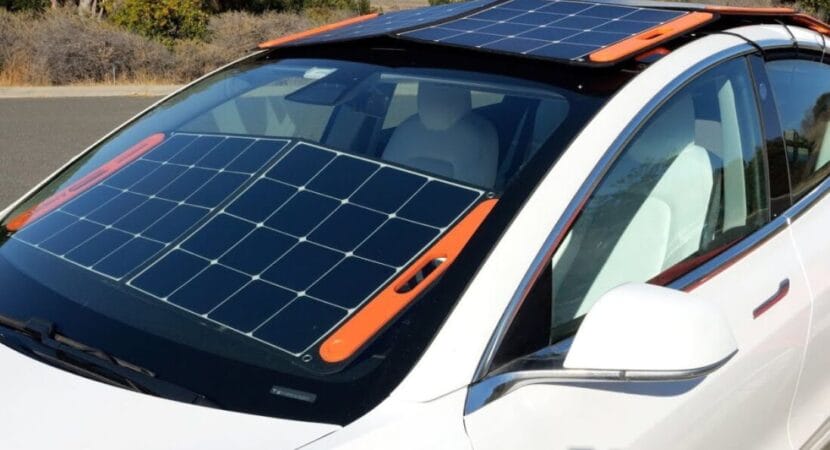
Discover how many solar panels are needed to operate an electric car without energy costs, turning sunlight into your renewable fuel source.
The electric car revolution is gaining momentum, and many wonder about the potential of solar panels to sustain these vehicles without the burden of energy bills, thus enjoying the benefits of solar energy. Let's explore the energy consumption of an electric car and how many photovoltaic panels it takes to keep it running.
Taking the Nissan Leaf as an example, with its average consumption of 14 kWh per 100 km, we calculate the energy needs for those who drive 50 km per day. This results in a consumption of 7 kWh daily, totaling 210 kWh monthly. This number is close to the average residential consumption, highlighting the energy efficiency of these vehicles.
How many solar panels are needed to charge an electric car?
To neutralize this consumption with solar energy, we consider 450 watt panels. With an average of 5.3 hours of sunshine per day in Recife and adjusting the efficiency to 75% (considering losses), each panel can generate approximately 53.6 kWh per month. Therefore, around 4 panels of 450 watts would be needed to meet the monthly demand of 210 kWh from an electric car.
This equation varies according to the power of the solar panels and local sunshine conditions, but the basic rule remains: divide the vehicle's monthly consumption by the estimated monthly production per panel. In the case of 350 watt panels, for example, 5 panels would be needed to cover the same consumption.
Therefore, with about 4 to 5 high-power solar panels, it is possible to power an electric car for moderate daily use, proving that sustainability in mobility it is not only viable, but increasingly affordable.
How much do solar panels for electric cars cost?
The price of solar panels can vary significantly depending on the brand, efficiency and origin. For electric cars, considering that we need sufficient capacity to generate around 1.8 kW peak, the cost of solar panels of 560 watts peak each can be estimated. On average, the price of a high-quality and efficient solar panel can vary from R$1.500 to R$2.500 in Brazil. Thus, for two 560 watt peak plates needed to efficiently charge an electric vehicle, the total cost could vary between R$3.000 and R$5.000, not including other components necessary for installation, such as inverters and energy storage systems. .
Adopting solar energy to charge electric cars is a financially accessible and technologically advanced initiative. Portable solar kits, which can vary in price, offer a practical solution, although it is essential to evaluate their safety and effectiveness. The integration of solar panels into vehicles is still in the development phase, with estimated prices based on the technology and capacity required.
A solar panel has a remarkable useful life, which can exceed 25 years. Although its efficiency gradually decreases, annual degradation of 0,5% to 1% still allows for significant performance over time, representing a long-lasting and reliable investment.
And the electric car, how long does it take to charge with solar energy?
The time to fully charge the battery of an electric car with solar energy varies depending on several factors, such as the battery capacity and the power of the solar panel. Under ideal sunny conditions, the process can take a few hours, making this a viable and eco-efficient alternative for vehicle fueling.
At the heart of the solar charging system are batteries, with lithium-ion batteries being the most suitable due to their Superior efficiency and greater storage capacity, despite the higher cost compared to lead-acid ones. These batteries accumulate converted solar energy, ensuring energy availability for vehicles whenever necessary.











